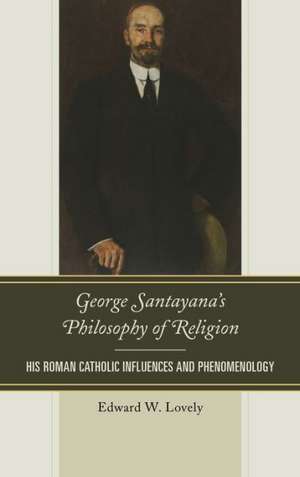George Santayana's Philosophy of Religion
Autor Edward W. Lovelyen Limba Engleză Hardback – 12 oct 2012
Preț: 736.25 lei
Preț vechi: 1008.57 lei
-27% Nou
Puncte Express: 1104
Preț estimativ în valută:
140.88€ • 145.34$ • 117.57£
140.88€ • 145.34$ • 117.57£
Carte tipărită la comandă
Livrare economică 26 martie-09 aprilie
Preluare comenzi: 021 569.72.76
Specificații
ISBN-13: 9780739176269
ISBN-10: 0739176269
Pagini: 240
Dimensiuni: 152 x 229 x 25 mm
Greutate: 0.52 kg
Editura: Rowman & Littlefield
ISBN-10: 0739176269
Pagini: 240
Dimensiuni: 152 x 229 x 25 mm
Greutate: 0.52 kg
Editura: Rowman & Littlefield
Notă biografică
By Edward W. Lovely
Descriere
The book addresses George Santayana's philosophy of religion and its basis in his overall philosophical project with an exploration of some phenomenological aspects of his approach and his potential influence on contemporary religious thought. Emphasis is placed upon his Roman Catholic and Greek influences and his constructionist viewpoint toward Catholic symbols and dogma.
